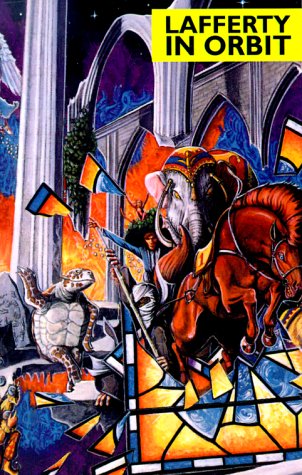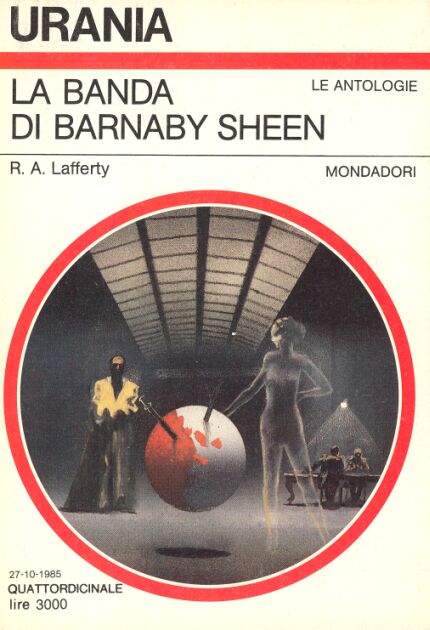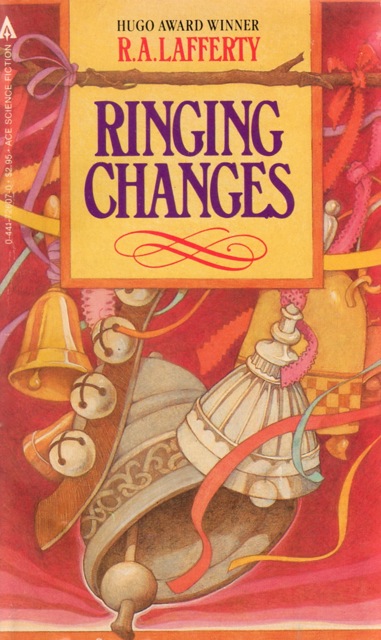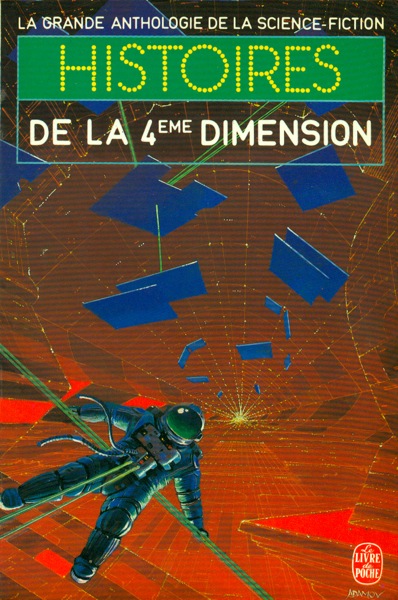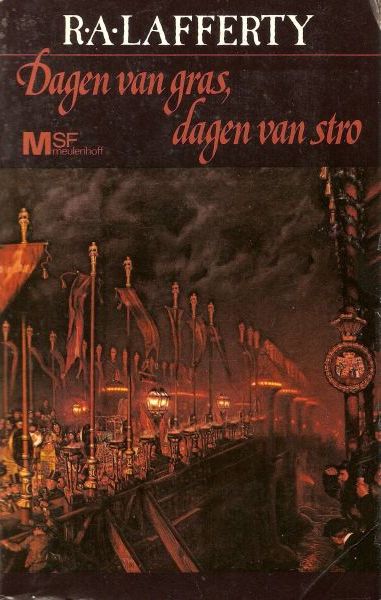Short Stories Interurban Queen
Interurban Queen
—R. A. Lafferty
-
- · 1970
(1896 A.D.) "And I will tell you another thing, boy: There is no future for the automobile. We cannot let there be! Consider the man on horseback, and I have been a man on horseback for most of my life. Well, mostly he is a good man, but there is a change in him as soon as he mounts. Every man on horseback is an arrogant man, however gentle he may be on foot. I know this in myself and in others. He was necessary in his own time, and I believe that time is ending. There was always extreme danger from the man on horseback." —R. A. Lafferty
“Lafferty depicts an America where electric interurban transport had won out over the automobile, which the group-centred interurbanites have outlawed. The picture he paints is of a friendly, idyllic land free of urban blight, agriculture and industry being blended into lovely, evenly-populated “quasiurbia”, unified by convenient public transport. But it is also a land where competition having yielded completely to cooperation, the individualist and the loner are not tolerated; and those who persist in driving bootleg cars are considered incorrigible menaces to society, whom it is the duty of all right-thinking citizens to shoot on sight in approved vigilante manner. What makes “Interurban Queen” so remarkable, though, is the incredible tonal balance with which Lafferty handles the two sides of this question: I cannot tell, even with inside knowledge of Lafferty's personal politics, where his sympathies lie — probably a historic first in s-f of this type.”
- —Sheryl Smith, Riverside Quarterly Vol. 7 No. 2 (1982)
- · K. Wolf (2014) · Matan Farhi (2010)
- · Search
Copyright & Licensing: If you submit a comment, you agree to license the original text of your comment as CC-BY-4.0, allowing others to share and adapt your comment for any purpose, even commercially, as long as attribution is given and changes are indicated. Please see the full license.
Literary criticism of Lafferty has been sparse, and valuable essays remain out of print due to unclear license or estate status. The CC-BY license provides an option for Lafferty scholars to republish and critique your writing, and enables Lafferty archivists to migrate comments to new platforms and media.

